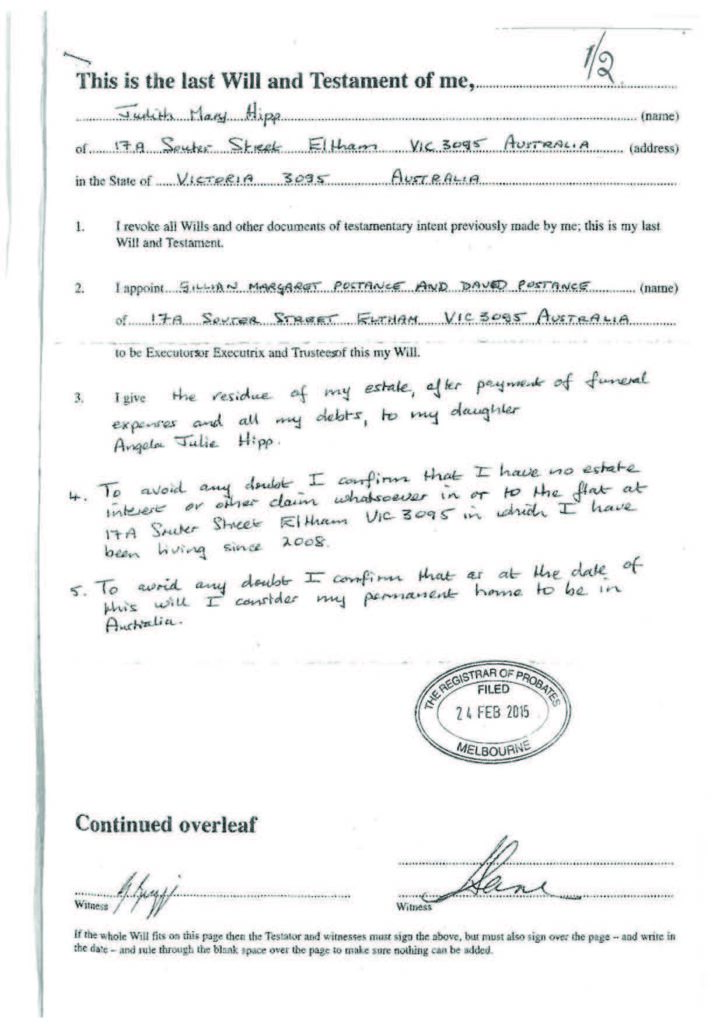In some cases, homemade Wills can cost the deceased’s estate considerable expense. We share with you just how defective a homemade Will can be and how risky it is for appointed executors to try to obtain probate of a homemade Will without legal assistance.
In this article, we highlight the misconception that homemade Wills save you money through the following case study based on a real life example.
The executors of a homemade Will sought legal advice when they received 2 pages of requisitions raised by the Registrar of Probates. The executors had prepared an application for a grant of Probate of a homemade Will without any assistance from a Wills & Estates lawyer or a Probate clerk.
Click the image to expand:
What was wrong with the Will;
- The Will was signed with different pens. The testator used a blue pen and the witnesses used a black pen.
- The testator signed both pages of the Will but it was signed in different blue pens and the signatures did not appear to be the same.
- The testator’s signature on the second page was curiously underlined in pencil.
- The clauses of the Will were not all in the same handwriting which raised questions about who had prepared this Will and whether clauses had been added after the Will was executed.
Issues raised by the Registrar of Probate
- The Registrar required affidavits of due execution. That is the witness to the will had to swear under oath that they witnessed the testator signing her will in their presence. The witness had to explain the changes made to the Will which had not been signed, either by the testator or the witness.
- The Registrar also called for evidence on oath of who drafted the Will and whether it was the deceased’s handwriting that appeared in the Will.
- Aside from the problems associated with the preparation and execution of the Will, the Probate application itself contained inadequacies such as the failure to produce a certified copy of the death certificate when swearing the Affidavit of executors.
- As there were legal considerations involved in this proceeding, the executors were advised to consider seeking the advice of a solicitor before filing responses to the requisitions raised.
It was clear that the Will propounded for Probate had not been executed in accordance with Section 7 of the Wills Act 1997 (the Act) and therefore was invalid. However, section 9 of the Act empowers the Supreme Court of Victoria to admit such a document to Probate if it is satisfied that the deceased intended the document to be their last Will. To obtain Probate of such an invalid Will, the Registrar of Probates also required proof on oath that all persons who would be affected by a decision under section 9 consented to those powers being exercised by the Registrar.
In the end, Probate was granted to the executors but it was with protracted delay and considerable expense to the estate, not to mention the stress and tension between executors and beneficiaries. We cannot emphasise enough the importance of making sure that your Will is carefully prepared by a Wills & Estates lawyer. It is equally important to appreciate that the preparation of an application for a grant of Probate may not be a simple and straight forward process.
This article originally appeared in the winter 2016 edition of InSuccession. Other articles in this newsletter included:
| Disclaimer: This publication contains comments of a general nature only and is provided as an information service. It is not intended to be relied upon as, nor is it a substitute for specific professional advice. No responsibility can be accepted by Rigby Cooke Lawyers or the authors for loss occasioned to any person doing anything as a result of any material in this publication.
Liability limited by a scheme approved under Professional Standards Legislation. ©2016 Rigby Cooke Lawyers |

